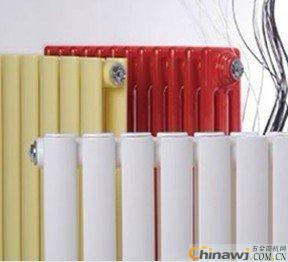Common Heating Issues in Jinan Radiators
In Jinan, there are three standard conditions for heating with radiators: 1) inlet water temperature of 95°C and outlet temperature of 70°C, 2) inlet temperature of 75°C and outlet of 57°C, and 3) inlet temperature of 55°C and outlet of 45°C. These conditions highlight the importance of maintaining proper inlet water temperature to ensure efficient heating.
Preparing for the Heating Season
Before the heating season begins, it's crucial to inspect all indoor radiators. Check the valves in your heating system to make sure they're closed and only opened when hot water is being injected. Ensure that all connections are secure and free from leaks, as even small issues like dripping or running can cause bigger problems later. Also, check for any obstructions or potential repair needs. While the system is being filled with water, it’s a good idea to stay at home and monitor the process. Manually release air from the radiators and observe the water flow to ensure everything is working properly.
What to Do If Your Radiator Isn't Heating
If your radiator isn't getting warm, first determine which heating unit is responsible for your area. Usually, the building management or the local heating company is accountable. Report the issue to the relevant authority so they can investigate and resolve it. If the problem is due to damaged or misaligned pipes within your home, the property owner is typically responsible for repairs.
Dealing with Water Leaks
If you notice a leak, act quickly. Place a container under the leak to catch the water. If the leak is spreading, use a towel to wrap the area and direct the water into the container. If you have control over the indoor valves, close the main valve at the entrance of your heating system immediately. For older systems with a control valve, shut off the radiator valve. If the system doesn’t have a control valve, and the situation is urgent, you may need help to close the building’s main valve and contact maintenance personnel right away.
How to Identify Water Seepage
For minor seepage (around 5 drops per minute), you can use a small container to collect the water. As the water temperature rises, the seepage might decrease. If the leak is more than 10 drops per minute, observe it for 3 to 5 days. If the seepage lessens with temperature changes, you can continue collecting the water. However, if the leak is severe (over 10 drops per minute), it's important to contact the relevant authorities for immediate repair.
Can You Use Water from the Heating System?
The water used in the heating system is softened and treated with anti-corrosion chemicals. This makes it unsafe for drinking or other household uses. Using this water can be harmful to your health. Additionally, losing water from the system can lead to blockages and reduce heating efficiency. A significant loss of water can also affect the pressure and flow throughout the entire system, which can lower the overall heating temperature.

Self-tapping threaded inserts are suitable for creating heavy-duty, wear-resistant and vibration-proof fastenings in materials with low shear strength, such as aluminium, brass, bronze, cast iron or duro and thermoplastics. Threaded inserts with cutting slot are available in steel and stainless-steel versions.
Self Tapping Insert,302 Self-Tapping Insert,Self Tapping Insert Type 302,Thread Inserts Type Of 307 Steel
Shenyang Helisert Technology Co., Ltd , https://www.helisert.com
